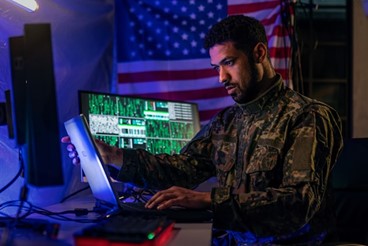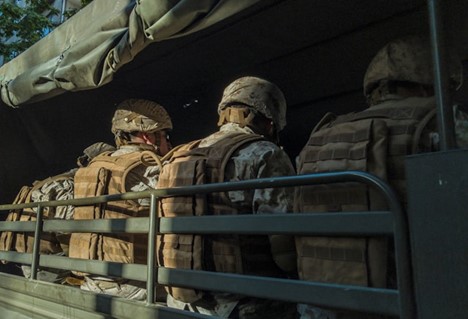Military service is not only a noble calling but also a transformative experience that equips individuals with a diverse set of skills and qualities. While many may associate military training with combat and warfare, the reality is that the skills acquired during service are highly transferable to civilian careers. In this article, Troy Thompson of Salem New Hampshire explores how military training prepares individuals for success in the civilian workforce and unlocks a myriad of opportunities for transitioning veterans.
Adaptability and Resilience
One of the most valuable traits cultivated through military training is adaptability. Service members are trained to thrive in dynamic and unpredictable environments, where they must quickly adjust to changing circumstances and overcome unforeseen challenges. This ability to adapt is highly sought after in the civilian world, where rapid changes in technology, markets, and organizational structures are the norm. Employers value candidates who can remain composed under pressure and effectively navigate uncertainty, making veterans ideal candidates for roles that require flexibility and resilience.
Leadership and Teamwork
This training places a strong emphasis on leadership development and teamwork, recognizing that success often hinges on the collective efforts of a cohesive unit. Service members learn to lead by example, inspire others, and make decisions under pressure—all essential qualities in today’s competitive job market. Whether serving as squad leaders, platoon sergeants, or commanding officers, veterans acquire invaluable leadership experience that translates seamlessly to civilian leadership roles. Moreover, the collaborative nature of military operations fosters strong teamwork skills, enabling veterans to excel in diverse work environments and contribute to the success of their teams.
Technical Proficiency
Military training encompasses a wide range of technical skills and specialties, from engineering and logistics to communications and information technology. Veterans often undergo extensive training in operating and maintaining advanced equipment and systems, honing their technical expertise in specialized fields. This hands-on experience translates directly to civilian careers in sectors such as aerospace, cybersecurity, healthcare, and manufacturing, where employers value candidates with practical skills and real-world experience. Additionally, veterans may receive certifications and credentials during their military service, further enhancing their qualifications and employability in civilian roles.

Problem-Solving and Decision-Making
During service, individuals are routinely tasked with solving complex problems and making critical decisions in high-stakes situations. Whether devising tactical plans on the battlefield or troubleshooting equipment malfunctions, service members develop strong problem-solving and decision-making abilities that are applicable across various industries. Employers value candidates who can analyze situations, evaluate options, and implement effective solutions, making veterans valuable assets in roles that require strategic thinking and problem-solving skills. Moreover, the ability to remain calm and composed under pressure enables veterans to make sound decisions in fast-paced environments, contributing to the success of their organizations.
Adherence to Discipline and Integrity
The military instills a strong sense of discipline, integrity, and professionalism in service members, shaping their character and work ethic. Veterans are accustomed to following standard operating procedures, adhering to regulations, and upholding the highest standards of conduct and ethics. These attributes are highly valued in the civilian workforce, where employers seek candidates who demonstrate reliability, accountability, and ethical behavior. Veterans bring a level of integrity and commitment to their work that sets them apart, earning the trust and respect of their colleagues and employers alike.
Conclusion
Army training equips individuals with a diverse array of skills, qualities, and experiences that are highly transferable to civilian careers. From adaptability and leadership to technical proficiency and problem-solving, veterans bring a unique set of strengths and capabilities to the workplace. Employers across industries recognize the value of hiring veterans and actively seek to leverage their skills and experiences to drive innovation, growth, and success. By harnessing their military training and embracing new opportunities, veterans can embark on fulfilling civilian careers that enable them to continue serving their communities and making a positive impact in the world.
